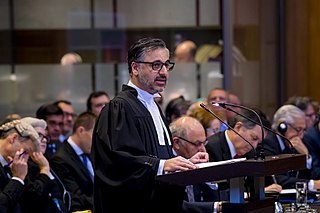A Quote by Jon Katz
It's important to remember that the animals are not grieving with us. They're very accepting. They're not lying there thinking 'How could you do this to me? Why aren't you keeping me going?' Pets don't do the human things of guilt and anger and recrimination that we do. They come and go with great acceptance.
Related Quotes
I'm a husband and a dad. Two thirds of my day is spent being that character. It's a huge part of my identity and why I pursue things I do. I'm interested in questions my son asks me, like, "Why do animals fight? Why do you have to leave us to go on the road?" Everything he asks gets me thinking. If I'm going to do this, sacrifice time with family and friends, sacrifice resources, I need to think carefully about what I going to say and how I'm going to say it.
When others hurt us in ways we don't deserve, at some point we will come to the crossroads of decision. We will have to look our pain square in the face and ask, "Am I going to hang on to my anger and do violence to myself, or am I going to forgive those who have wounded me? Am I going to allow bitterness to poison and putrefy my soul, or am I going to invite God to empower me to let the anger go?"
We have this desire for everything to be explained to us. But if you go through your daily actions, very little ends up having a written-down explanation for why things happen, or why people do specific things. So it made sense to me to reflect the human condition that not every action has an explanation. We act, and then later maybe come to an understanding about it, or maybe not.
In your 40s, you kind of know how things are likely to go, and you're better at saying, 'You know what? That just doesn't suit me...' I remember thinking in my 30s, 'I should go to Burning Man. I could be a Burning Man person.' And in my 40s, I'm like, 'You know what? I'm never going to go to Burning Man.'
I think this is one of the problems that we're having in Indigenous affairs. Why we're not confronting the issues that are going to resolve it, the anger and the guilt. The anger on the Aboriginal side; the guilt on the non - Aboriginal side. We have got to deal with that, move on and start doing real work.
Storytelling is very important. It is through context and relations that we understand the importance of human dignity. The concept means nothing as an abstraction. It's important for us to understand why people do the things they do, including the monsters - the suicide bomber and the war criminal. Understanding is not acceptance. Understanding is exploring the human psyche. If we want to put an end to violence, we need to have the sort of conversation I had with the teenage suicide bomber.
When I was at seminary in my early twenties, one of my teachers said to me, "You're going to have to decide. Either you're going to be an academic or you're going to be a pastor. You can't be both." I remember thinking, Rats! I want to be both! Why are you telling me I can't do these two things?And so I have kind of oscillated to and always wanted to do both.
I meet you. I remember you. Who are you? You’re destroying me. You’re good for me. How could I know this city was tailor-made for love? How could I know you fit my body like a glove? I like you. How unlikely. I like you. How slow all of a sudden. How sweet. You cannot know. You’re destroying me. You’re good for me. You’re destroying me. You’re good for me. I have time. Please, devour me. Deform me to the point of ugliness. Why not you? Why not you in this city and in this night, so like other cities and other nights you can hardly tell the difference? I beg of you.
One of the less attractive aspects of human nature is our tendency to hate the people we haven't treated very well; it's much easier than accepting guilt. If we can convince ourselves that the people we betrayed or enslaved were subhuman monsters in the first place, then our guilt isn't nearly so black as we secretly know that it is. Humans are very, very good at shifting blame and avoiding guilt.
































